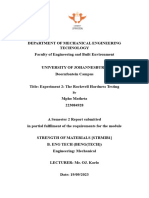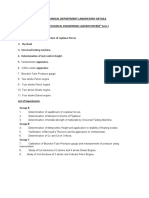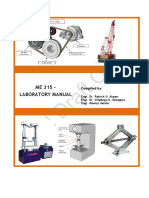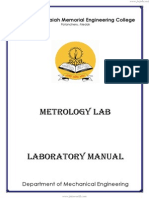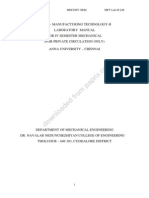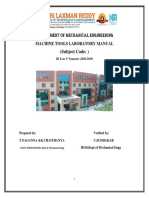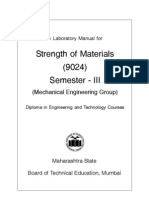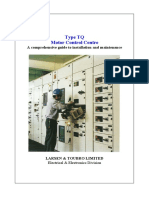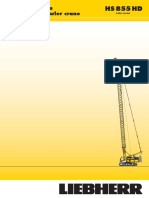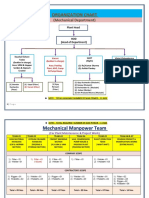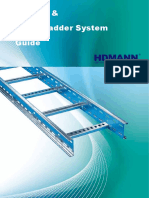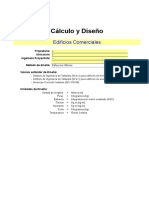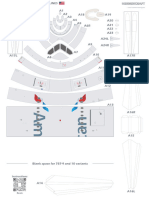Self-Reflection Report on Mechanical Lab Experiments
Date: 28 October 2024
Location: Govt. Model Engineering College, Thrikkakara
Prepared by: Nitin Tony Paul
Introduction
As part of our Life Skills and Professional Communication course, we had the opportunity to explore
the mechanical laboratory at our college. This experience offered a hands-on introduction to various
mechanical tools, machines, and instruments used in real-world engineering scenarios. The lab is
well-equipped, providing a solid foundation for enhancing practical understanding and technical
skills.
Experiment 1: Drilling Practice Using Electric Hand Drilling Machines
This session introduced us to electric hand drilling, where we practiced creating precise holes in
metallic workpieces. I learned the significance of proper bit alignment, speed control, and consistent
pressure to avoid damage. Additionally, I explored different drill bits suited for specific materials and
understood the necessity of cooling during prolonged use. Ensuring the drill remained perpendicular
helped improve accuracy and overall results.
Experiment 2: Cutting of MS Rod and Flat Using Electric Hand Cutters
This experiment focused on cutting mild steel rods and flats using electric cutters. I learned the
importance of clear marking, steady handling, and adjusting the cutting angle for better efficiency
and minimal material wastage. Safety protocols, like wearing protective gloves and goggles, were
strictly followed. I also observed the variation in cut quality based on blade type and cutting speed.
Experiment 3: Filing, Finishing, and Smoothening Using Electric Hand Grinders
Using an electric grinder, we performed tasks such as deburring and surface smoothening. I
selected appropriate grinding wheels for different applications and controlled the grinder's speed for
a clean finish. Special attention was given to grip and stability to avoid accidents. I also learned how
Page 1
� Self-Reflection Report on Mechanical Lab Experiments
to inspect and maintain grinding wheels to ensure long-term usability and safe operation.
Experiment 4: MS Rod Cutting Using Hacksaw with Bench Vice
This manual task required careful cutting of MS rods using a hacksaw secured in a bench vice. The
key learning here was maintaining steady pressure and alignment. I experimented with various
blades to determine their efficiency with different materials and practiced techniques such as optimal
stroke length and blade tensioning for a smoother cut.
Experiment 5: Usage of Precision Measuring Instruments
In this session, I gained hands-on experience with measuring tools like vernier calipers,
micrometers, and height gauges. These instruments helped me measure internal, external, and
depth dimensions with high accuracy. I also learned about calibration procedures and used tools like
screw gauges for thread measurement, improving my understanding of measurement standards in
mechanical work.
Experiment 6: Welding of MS and SS Workpieces
The final activity involved welding mild steel and stainless steel components. I practiced forming
joints like butt and lap joints using electric arc welding. Key takeaways included maintaining a steady
arc, correct electrode selection, and understanding the impact of parameters like voltage and travel
speed on weld quality. I also performed post-weld cleaning and inspections to assess joint strength
and appearance.
Conclusion
The mechanical lab experiments significantly enhanced my practical knowledge and technical
confidence. Each activity reinforced the critical role of safety, precision, and hands-on practice in
engineering. These foundational skills will undoubtedly aid me in future academic projects and
real-world engineering challenges.
Page 2

















